


Inedéditions.
Sound Archives, European Memories of the Gulag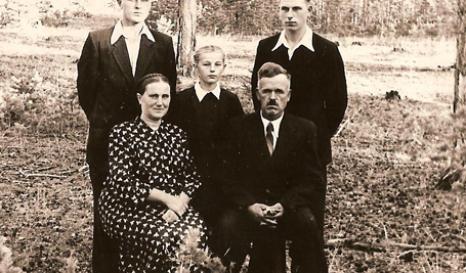
Back
Description:
- Title: Travels of the Ruzgys family
- Author(s): Inconnu
- Date: Inconnue
- Collection:
- Source: Sound Archives - European Memories of the Gulag
- Collection conditions: The Ruzgys family in Siberia. Rimgaudas, first from right (Photograph, Anonymous, 1956). Source: Rimgaudas Ruzgys's Personal archive.
- Licence: Media subject to copyright.
- Localisation: Inconnue
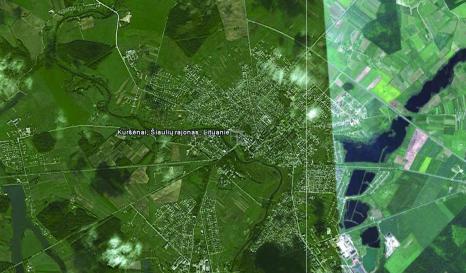
Back
Description:
- Title: Travels of the Ruzgys family
- Author(s): Inconnu
- Date: Inconnue
- Collection:
- Source: Sound Archives - European Memories of the Gulag
- Collection conditions: Leaving – Lithuania (Ruzgys family spatial trajectory map) (Map, Anonymous, 2012). Source: Sound Archives. European Memories of the Gulag.
- Licence: Media subject to copyright.
- Localisation: Inconnue
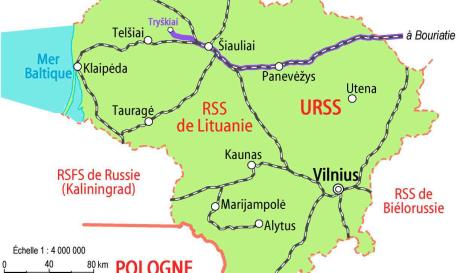
Back
Description:
- Title: Travels of the Ruzgys family
- Author(s): Inconnu
- Date: Inconnue
- Collection:
- Source: Sound Archives - European Memories of the Gulag
- Collection conditions: From Lithuania to Buryatia – the journey (Map, Anonymous, 2011). Source: Sound Archives. European Memories of the Gulag.
- Licence: Media subject to copyright.
- Localisation: Inconnue
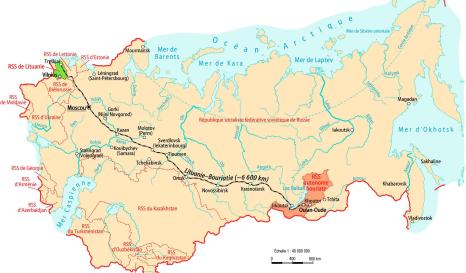
Back
Description:
- Title: Travels of the Ruzgys family
- Author(s): Inconnu
- Date: Inconnue
- Collection:
- Source: Sound Archives - European Memories of the Gulag
- Collection conditions: Map of the Ruzgys family's deportation route (Map, Anonymous, 2012). Source: Sound Archives. European Memories of the Gulag.
- Licence: Media subject to copyright.
- Localisation: Inconnue
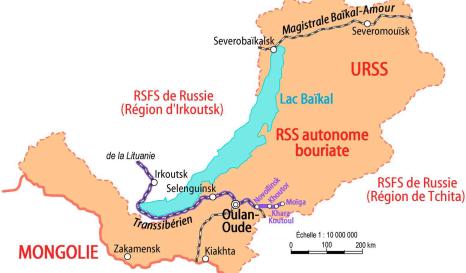
Back
Description:
- Title: Travels of the Ruzgys family
- Author(s): Inconnu
- Date: Inconnue
- Collection:
- Source: Sound Archives - European Memories of the Gulag
- Collection conditions: Settlement plan of Zaigrayevsky District, Buryatia (Siberia), drawn by Rimgaudas Ruzgys (Drawing, Rimgaudas Ruzgys, Undated). Source: Rimgaudas Ruzgys's Personal archive.
- Licence: Media subject to copyright.
- Localisation: Inconnue
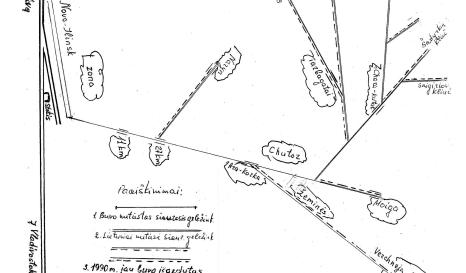
Back
Description:
- Title: Travels of the Ruzgys family
- Author(s): Inconnu
- Date: Inconnue
- Collection:
- Source: Sound Archives - European Memories of the Gulag
- Collection conditions: Places where Rimgaudas Ruzgys went, contemporary map (Map, Rimgaudas Ruzgys et Alain Blum, 2012). Source: Sound Archives. European Memories of the Gulag.
- Licence: Media subject to copyright.
- Localisation: Inconnue
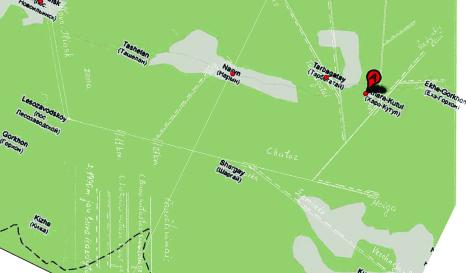
Back
Description:
- Title: Travels of the Ruzgys family
- Author(s): Inconnu
- Date: Inconnue
- Collection:
- Source: Sound Archives - European Memories of the Gulag
- Collection conditions: Plan of Khutor village, Buryatia (based on the Rimgaudas Ruzgys design). The village no longer exists (Drawing, Anonymous, 2011). Source: FAUX's Personal archive.
- Licence: Media subject to copyright.
- Localisation: Inconnue
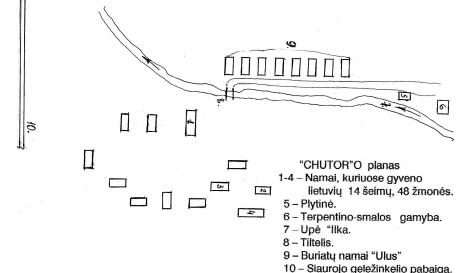
Back
Description:
- Title: Travels of the Ruzgys family
- Author(s): Inconnu
- Date: Inconnue
- Collection:
- Source: Sound Archives - European Memories of the Gulag
- Collection conditions: Plan of Moigua village, Buryatia (Siberia) drawn by Rimgaudas Ruzgys – the village no longer exists (Drawing, Rimgaudas Ruzgys, Undated). Source: Rimgaudas Ruzgys's Personal archive.
- Licence: Media subject to copyright.
- Localisation: Inconnue
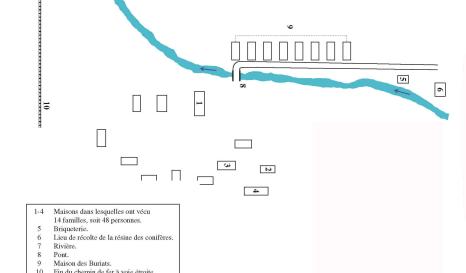
Back
Description:
- Title: Travels of the Ruzgys family
- Author(s): Inconnu
- Date: Inconnue
- Collection:
- Source: Sound Archives - European Memories of the Gulag
- Collection conditions: Plan of Khara-Kutul village, Buryatia (Siberia), (based on the Rimgaudas Ruzgys design) (Map, Anonymous, 2011). Source: Rimgaudas Ruzgys's Personal archive.
- Licence: Media subject to copyright.
- Localisation: Inconnue
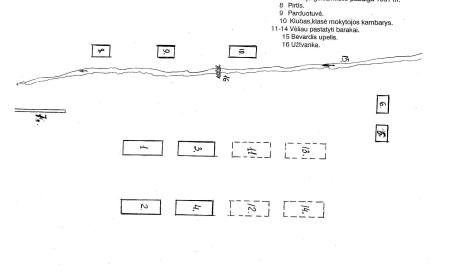
Back
Description:
- Title: Travels of the Ruzgys family
- Author(s): Inconnu
- Date: Inconnue
- Collection:
- Source: Sound Archives - European Memories of the Gulag
- Collection conditions: Plan of Khara-Kutul village (legend), where Rimgaudas Ruzgys lived in relegation (Drawing, Anonymous, 2011). Source: Rimgaudas Ruzgys's Personal archive.
- Licence: Media subject to copyright.
- Localisation: Inconnue
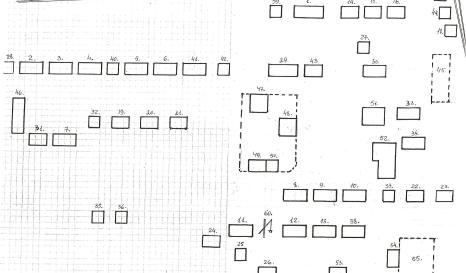
Back
Description:
- Title:
- Author(s): Inconnu
- Date: Inconnue
- Collection:
- Source: Sound Archives - European Memories of the Gulag
- Localisation: Inconnue
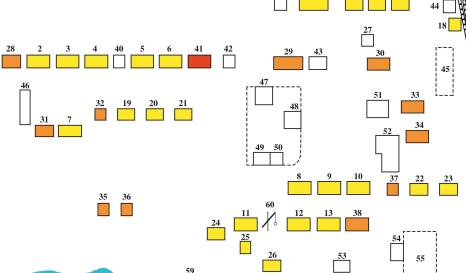
Back
Description:
- Title:
- Author(s): Inconnu
- Date: Inconnue
- Collection:
- Source: Sound Archives - European Memories of the Gulag
- Localisation: Inconnue
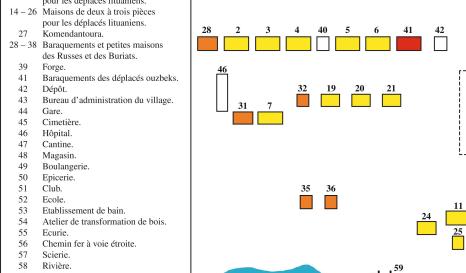
Back
Description:
- Title:
- Author(s): Inconnu
- Date: Inconnue
- Collection:
- Source: Sound Archives - European Memories of the Gulag
- Localisation: Inconnue

